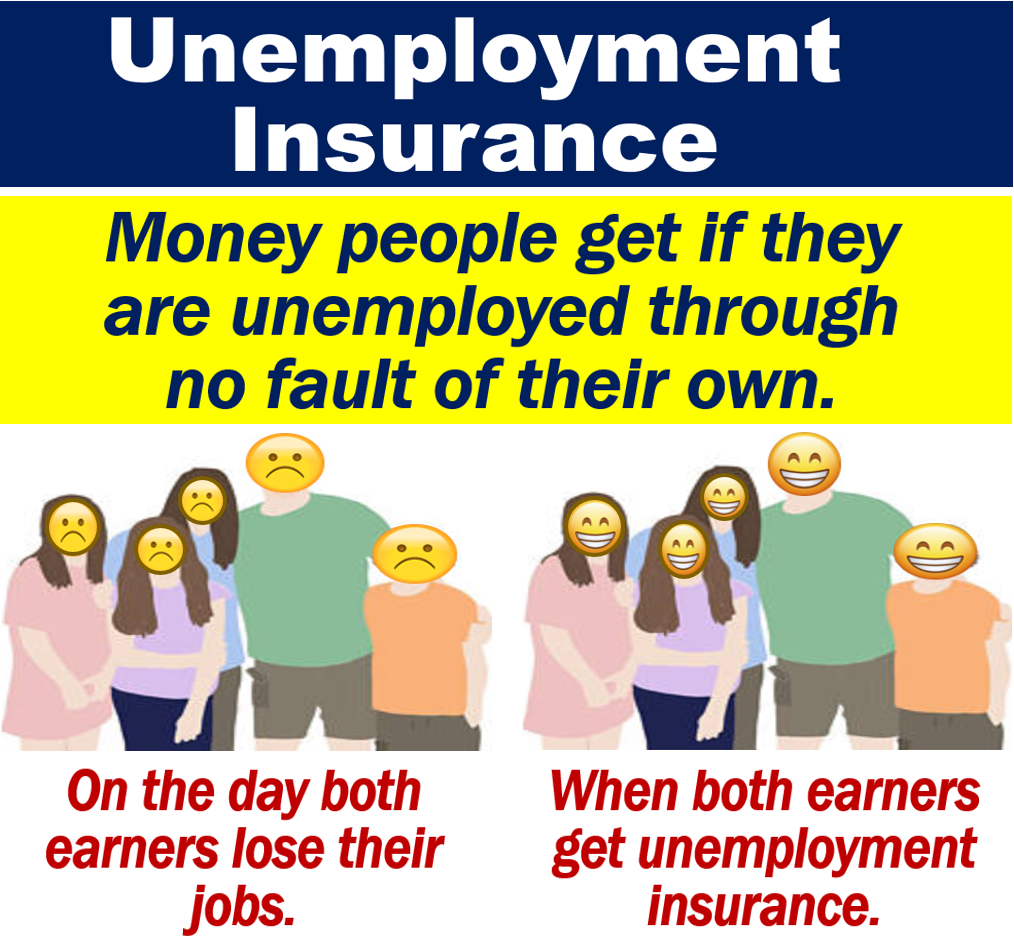Unemployment insurance, also known as UI, unemployment compensation, or benefits, are payments given to people that became unemployed. They only receive payments if losing their jobs was not their fault.
People receive this type of benefit from a government institution or an official organization. However, the person must meet certain criteria.
Unemployment insurance is part of the welfare state. The welfare state is a system in which the state, i.e., the government, undertakes to protect its citizen’s well-being.
Unemployment insurance – synonyms
There are many terms that mean the same as unemployment insurance. For example, in the UK and some other Commonwealth nations, people say ‘the dole.’
Unemployment benefit, government benefit, benefit payments, and social security can also mean money that unemployed people receive.
In some English-speaking nations, if somebody says “I’ve signed on,” it means they are getting unemployment benefit.

According to the Illinois Department of Employment Security: “Unemployment insurance is a state-operated insurance program designed to partially replace lost wages when you are out of work.”
You’re not not eligible if
Unemployment insurance does not protect you from income loss if you became unemployed by choice. Neither does it protect you against loss of income if you are absent from work due to illness.
According to the Employment Development Department of the State of California, people applying for UI must meet the following requirements:
- They must have no job or be partially jobless, i.e., underemployed.
- He or she must be unemployed through no fault of their own.
- They must be available to work.
- He or she must be actively looking for a job.
- They must be physically able to work.
- He or she must be willing to accept a new job whenever, i.e., at any time.
- There are also other requirements, which vary from area to area.
- Those who meet the eligibility requirements will subsequently receive cash benefits.
Unemployment insurance – not forever
However, in most countries, those benefits do not go on forever. In California, for example, unemployed people can receive benefits for a 26 full weeks in a period of one year.
In some cases, those who still have not found a job within 26 weeks get an extension. If they get an extension, they will subsequently receive cash benefits for an additional 13 to 30 weeks.
Losing your eligibility
If you terminated your contract without good cause or for disciplinary reasons you may lose your UI eligibility.
You may also become disqualified if you took part in a labor dispute or if you committed a felony.
Disqualification may occur if you apply for benefits from another state or are already receiving worker compensation.
Unemployment insurance fraud
If you start work but continue receiving or claiming UI money, you are committing unemployment insurance fraud. This is against the law.
It is also against the law to work part-time or do odd jobs while receiving cash benefits.
The US Department of Employment Services says that UI fraud penalties may include:
- Criminal prosecution.
- Fines and penalties.
- The loss of future income tax refunds.
- Disqualification from future UI benefits.
Video – Unemployment insurance
This video, by the US Executive Office of Labor and Workforce Development, explains how to apply for unemployment insurance.
The video is relevant mainly for American citizens. However, what people must go through to get help is similar in most advanced economies.
